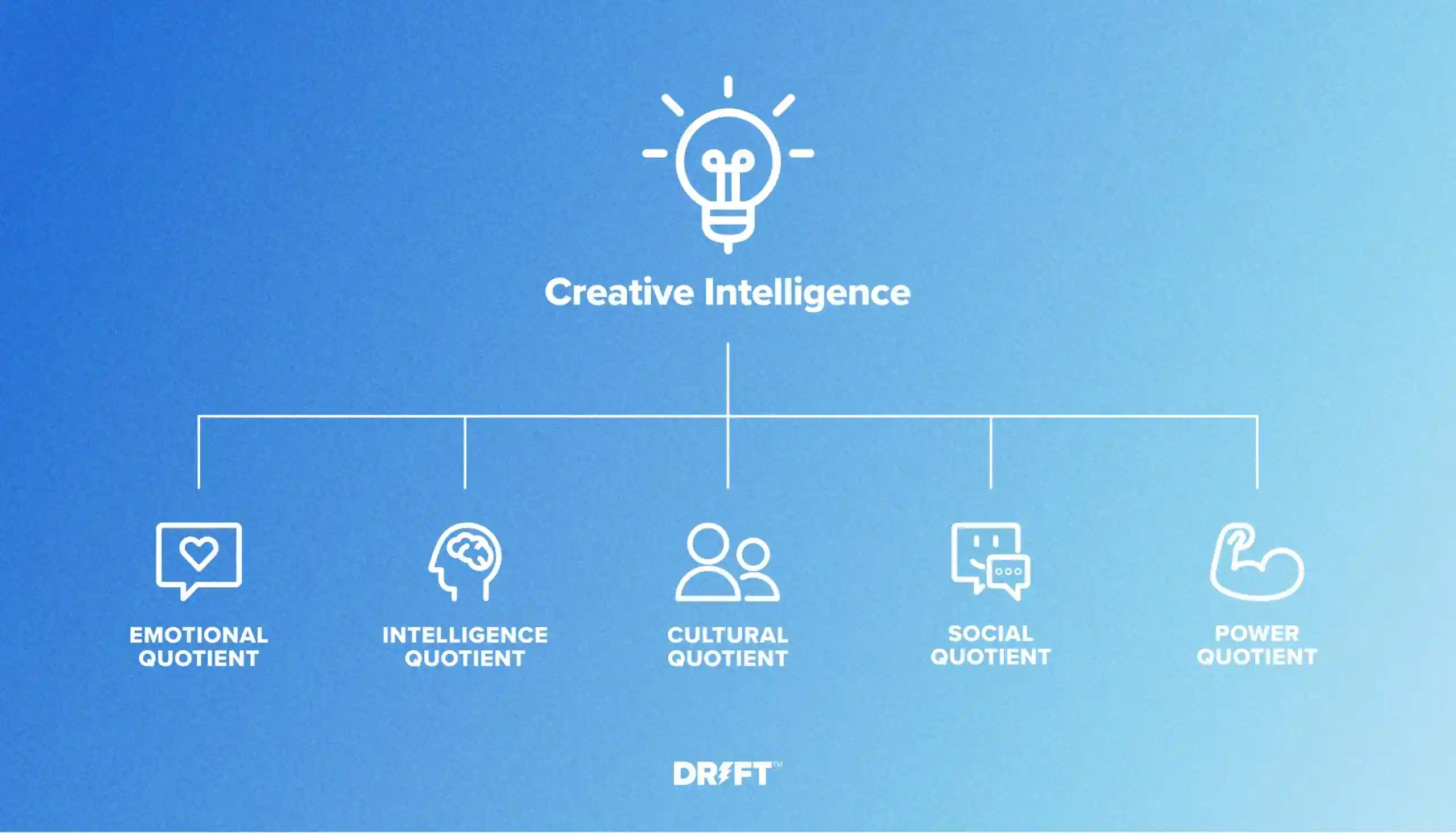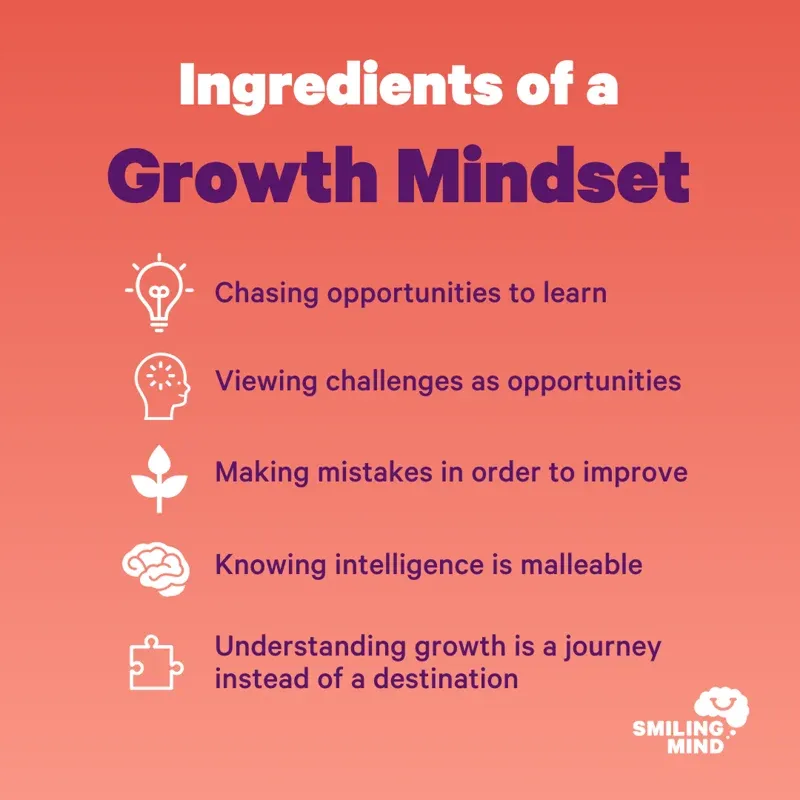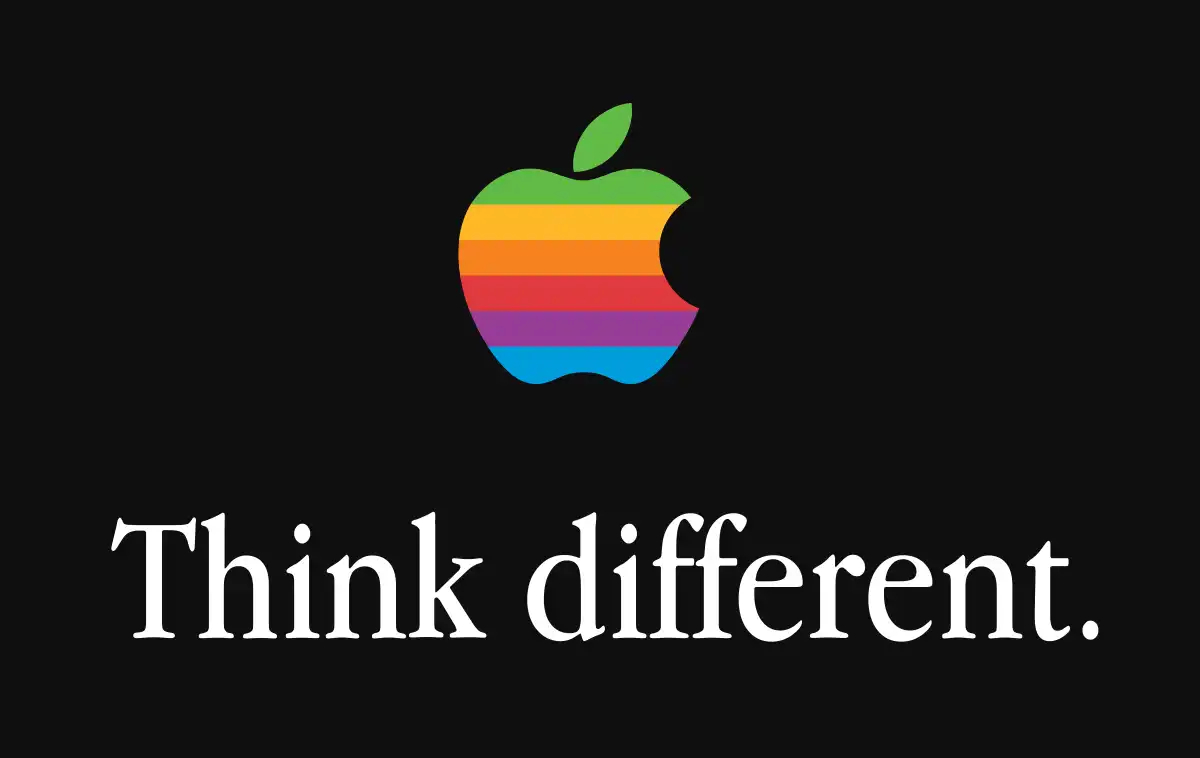Introduction
Forget logic. To succeed in marketing, you must defy reason.
Shocking? Perhaps. But the stark truth is that breakthrough ideas laugh at analytics. They spring from irrationality, not spreadsheets. This guide will teach you to think creatively.
If marketing were logical, computers could do it. But people don’t make decisions based on bits and bytes. We run on emotion, intuition, inspiration. To connect deeply, marketing must tap into the unquantifiable side of human nature.
Marketing excellence lives in the space where logic crashes into creativity, where left-brain rigidity gives way to right-brain fluidity. Master this, and you’ll conjure ideas that logic alone could never produce.
So continue reading to know more about marketing excellence with your creative intelligence.
Understanding Creative Intelligence

Creative intelligence is a valuable marketing skill that combines imagination, reasoning, and perception. By tapping into creative intelligence, marketers can drive innovation and differentiate their brand in a crowded market.
Creative intelligence differs from traditional intelligence because it requires a different way of thinking and problem-solving. Using both forms of intelligence, marketers can develop comprehensive strategies and campaigns that drive growth and success.
Key Components of Creative Intelligence
Creative intelligence is the ability to develop innovative solutions and think outside the box. It involves several key components:
- Imagination - Visualizing and mentally manipulating abstract concepts and ideas to generate fresh, unconventional solutions
- Reasoning - Analyzing information, making logical connections, and developing hypotheses to inspire new solutions
- Perception - Interpreting inputs in novel, unpredictable ways to uncover insights and opportunities
- Flexibility - Being open to explore different perspectives and new ways of thinking
- Risk Taking - A willingness to pursue bold, original ideas despite potential failure
Using these components of creative intelligence, marketers can gain the cognitive skills needed to drive truly innovative campaigns and marketing strategies.
Next, we will look into the benefits of creativity and intelligence in marketing.
Benefits of Creative Intelligence in Marketing
Creative intelligence offers numerous benefits to marketers. It fosters a mindset that encourages thinking outside the box, enhances problem-solving skills, and drives innovation and adaptability.
By harnessing their creativity and intelligence, marketers can develop unique, engaging, and impactful marketing strategies that drive business success.
Increased ability to think outside the box
Creative intelligence empowers marketers to break free from conventional thinking patterns and embrace unorthodox approaches. It enables them to see beyond the obvious and explore new ideas, perspectives, and strategies.
By thinking outside the box, marketers can develop unique and compelling campaigns that capture the attention of their target audience. They are more likely to develop innovative solutions and creative concepts that set their brand apart from competitors.
Enhanced problem-solving skills
Creative intelligence enhances problem-solving skills by encouraging marketers to approach challenges differently. It enables them to analyze problems holistically, consider alternative solutions, and find unconventional ways to overcome obstacles.
Marketers with strong creative intelligence can generate unexpected solutions that others might not have considered, leading to more effective problem-solving and better outcomes for their brand.
Suggested Reading:
9 Ways to Use Generative AI to Boost Your Marketing Efforts
Improved innovation and adaptability
Creative intelligence fuels innovation and adaptability in marketing. It allows marketers to adapt to evolving market dynamics, consumer preferences, and technological advancements.
With creativity and intelligence, marketers can generate fresh ideas and strategies that meet the ever-changing needs of their target audience. They can also adapt their marketing campaigns and messages to stay relevant and resonate with customers. Flexibility and innovation are essential too.
Using their creative intelligence, marketers can stay ahead of the curve, remain innovative, and continuously evolve their marketing efforts to meet the demands of their audience. It enables them to embrace new trends, experiment with new platforms, and exploit emerging opportunities.
Techniques for Harnessing Creative Intelligence
Cultivating curiosity, embracing failure and risk, and developing a growth mindset are essential techniques for harnessing creative intelligence. By incorporating these techniques into their approach, marketers can enhance their creative thinking abilities, develop innovative strategies, and drive success in their marketing endeavors.
Cultivating Curiosity and Embracing New Experiences
The techniques for this, include:
- Stay curious and seek out new experiences to gain fresh perspectives and ideas
- Learn from diverse sources and explore different viewpoints to expand creative potential
- Embracing new experiences sparks inspiration and uncovers innovative solutions
Developing a Growth Mindset

It is essential to have a growth mindset for marketing excellence, so:
- Adopt a mindset that abilities can be developed through dedication and hard work
- View challenges as opportunities for growth rather than obstacles
- Embrace continuous learning and seek feedback for improvement
- Reframe difficulties as chances to expand creative potential
- Approach problems with a positive and innovative mindset
Encouraging Collaboration
To increase and encourage collaboration, follow through:
- Foster collaboration and welcome diverse perspectives to tap into creative potential
- Bring together cross-functional teams and blend viewpoints to spark innovation
- Diverse backgrounds and experiences fuel creativity and unconventional thinking
- Embracing Failure and Risk-Taking
- Be willing to take risks and pursue bold, original ideas despite potential failure
- See failures as learning opportunities rather than setbacks
- Analyze what went wrong and apply insights to future endeavors
- Risk-taking fosters experimentation and can lead to breakthrough innovations
- Reward creativity and build a culture that celebrates taking chances
Suggested Reading:
How to Optimize Your Marketing Campaigns with Automated Communication
Case Studies of Successful Marketing Campaigns Driven by Creative Intelligence
These case studies demonstrate how creative intelligence can drive successful marketing campaigns. By understanding their target audience, embracing unconventional approaches, and tapping into emotions and values, these brands were able to stand out and create a strong connection with their customers.
Apple's "Think Different" Campaign

Apple's iconic "Think Different" campaign showcases their innovative and creative approach to marketing. Instead of focusing solely on product features, Apple emphasized the values and aspirations of their target audience. The campaign celebrated individuals who dared to think differently, inspiring customers to align themselves with Apple's brand.
By tapping into creative intelligence, Apple positioned themselves as a brand that resonated with those who valued innovation and creativity. Thus ultimately transforming Apple into a cultural icon and driving customer loyalty.
Nike's "Just Do It" Campaign

Nike's "Just Do It" campaign is a testament to the power of creative intelligence in marketing. Nike shifted their focus from product features to the emotional and inspirational aspects of sports and physical fitness. The campaign encouraged individuals to embrace their own unique athletic abilities and push their limits.
Nike's creative intelligence-driven campaign connected deeply with consumers. It positioned Nike as a brand that understood and supported their athletic goals.
Dollar Shave Club's Viral Videos

Dollar Shave Club disrupted the razor industry with their creatively intelligent marketing campaign. Through humorous and engaging viral videos, they challenged the dominance of established razor brands by offering a subscription-based service with affordable, high-quality razors.
By infusing humor and relatability into their marketing strategy, Dollar Shave Club attracted a massive online following and achieved significant brand awareness. Their creative intelligence-driven campaign successfully differentiated their brand in a competitive market, leading to their acquisition by Unilever.
Conclusion
Creative intelligence is a powerful asset in the world of marketing. In an era of constant change and increasing competition, marketers need to find innovative ways to stand out from the crowd and connect with their target audience. Creative intelligence empowers marketers to think outside the box, develop unique solutions, and create memorable experiences that resonate with customers.
By harnessing creative intelligence, marketers can cultivate curiosity, embrace failure and risks, and develop a growth mindset. These techniques enable them to stay ahead of the curve, adapt to evolving consumer preferences, and drive business growth.
The key takeaway is that creative intelligence is not just reserved for a select few - it is a skill that can be nurtured and developed. By embracing creativity, taking risks, and fostering a culture that encourages collaboration and diverse perspectives, marketers can tap into their creative potential. It also drive impactful marketing campaigns that leave a lasting impression on their target audience.
With creative intelligence at the forefront, marketers have the opportunity to truly differentiate their brands and create meaningful connections with customers in an ever-evolving digital landscape.
Creative intelligence allows us to think beyond traditional marketing strategies and develop campaigns that are memorable and impactful.
Suggested Reading:
Marketing Automation Best Practices for Small Businesses
Frequently Asked Questions (FAQs)
What is creative intelligence in marketing and why is it important for success?
Creativity and intelligence in marketing refers to the ability to generate innovative and unique ideas, strategies, and campaigns. It is crucial for success as it helps businesses stand out, engage customers, and drive effective marketing campaigns.
How can I develop and nurture creative intelligence within my marketing team?
To develop and nurture creative intelligence, encourage a culture of innovation, provide opportunities for brainstorming and collaboration, support ongoing learning and development, and foster a safe space for taking risks and experimenting with new ideas.
What role does storytelling play in harnessing creative intelligence for marketing?
Storytelling is a powerful tool that taps into people's emotions and captures their attention. It helps marketers communicate their brand's values, create engaging narratives, and build meaningful connections with their target audience, ultimately driving marketing excellence.
How can I incorporate diverse perspectives in my marketing strategies to enhance creative intelligence?
To incorporate diverse perspectives, intentionally seek out input from people with different backgrounds, experiences, and expertise. This can be done through cross-functional team collaboration, user research, or diversity and inclusion initiatives, allowing for a broader range of ideas and insights.
Are there any real-world examples of successful marketing campaigns driven by creative intelligence?
Yes, many brands have successfully utilized creativity and intelligence in their marketing campaigns. Examples include campaigns like Apple's "Think Different" and Nike's "Just Do It," which demonstrated the power of creative storytelling and emotional appeal to engage and resonate with their target audience.
How can I measure the impact of creative intelligence in my marketing campaigns?
Measuring the impact of creative intelligence in marketing campaigns can be done through various metrics such as brand awareness, customer engagement, conversions, and customer feedback. Tracking these metrics and analyzing data can help assess the effectiveness and success of creative intelligence strategies.



